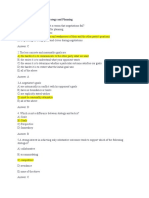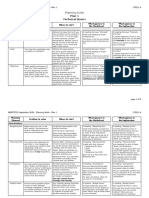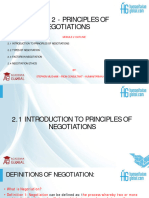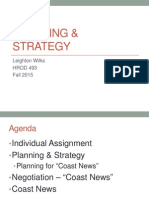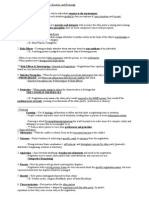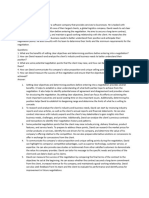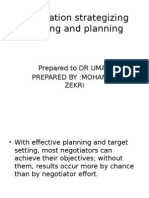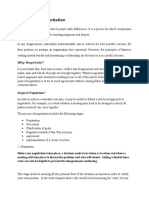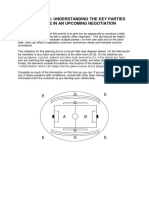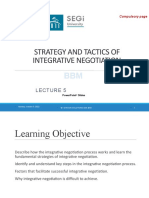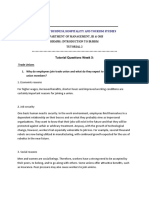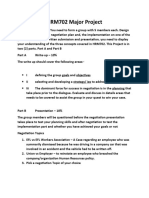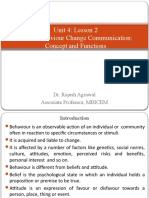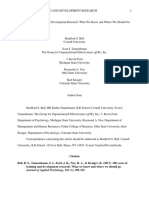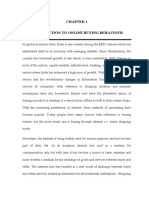0% found this document useful (0 votes)
984 views13 pagesFinal Exam Tutorials
The document discusses negotiation strategies and techniques. It identifies different types of negotiation such as distributive vs integrative and discusses key elements of each. It also examines characteristics of successful negotiators and different negotiation strategies such as accommodation, competition, and collaboration.
Uploaded by
Romeet Rish SinghCopyright
© © All Rights Reserved
We take content rights seriously. If you suspect this is your content, claim it here.
Available Formats
Download as DOCX, PDF, TXT or read online on Scribd
0% found this document useful (0 votes)
984 views13 pagesFinal Exam Tutorials
The document discusses negotiation strategies and techniques. It identifies different types of negotiation such as distributive vs integrative and discusses key elements of each. It also examines characteristics of successful negotiators and different negotiation strategies such as accommodation, competition, and collaboration.
Uploaded by
Romeet Rish SinghCopyright
© © All Rights Reserved
We take content rights seriously. If you suspect this is your content, claim it here.
Available Formats
Download as DOCX, PDF, TXT or read online on Scribd
/ 13





